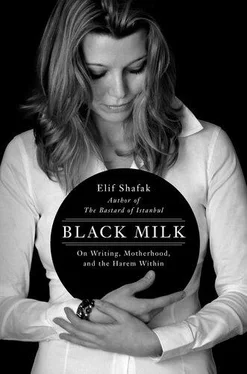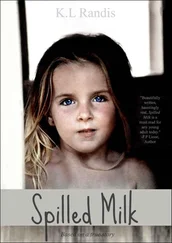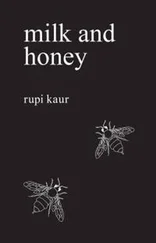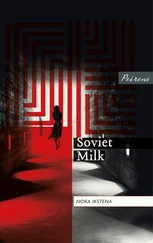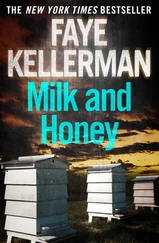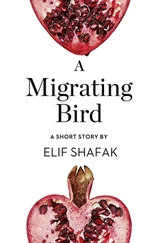Only then, only when the woman gets up, do I notice something I should have detected before. The woman isn’t overweight. She isn’t even plump. She is heavily pregnant, that’s all. Her belly looks so huge, she could well be expecting twins or triplets.
For some reason unbeknownst to me, this insignificant detail turns my head. But there is no time to muse. The steamboat is at the dock. Everybody springs to their feet in a hurry, swarming chaotically toward the doors. In that commotion, I come eye-to-eye with the man beside me.
“Thank you for the paper…” I say.
“You are most welcome,” he says. “I am happy if I was able to help.”
“Oh, you were,” I say. “Just curious, what is Shooting Star Marketing?”
“We are a new company specializing in products for mothers and newborn babies,” he says. “Electronic milk pumps, bottle warmers and things like that…”
The man’s smile blossoms into a grin. Or maybe it just looks that way to me. Suddenly it feels like somewhere in that bright blue sky where the sun has now begun to descend, the angels are pointing their milky-white fingers at me, making fun. There is an irony, when I come to think of it, in writing a single-girl manifesto on the letterhead of a company that sells products for new mothers.
Having noticed this irony, but not sure what to do with it, I stand there dumbstruck. A voice inside me says, “There are no coincidences in the universe, only signs. Can you see the signs?”
I brush the voice away and put my manifesto in my pocket, no longer completely convinced of its credibility. In this state I disembark the steamboat Gypsy .
Is this a sign I wasn’t seeing? For no reason at all I had written the single-girl manifesto. In that same breath I had seen the woman beside me as my Other. She was “the housekeeper-mother-wife” I would never let myself become. Thinking I was not only different from but also far better than she, I swore to be Miss Spinster Writer. Meanwhile, I wasn’t aware that above my manifesto glowed the name of a company that served new mothers. The universe was mocking my arrogance.
There must have been signs, not one but many, because months after writing this manifesto I fell head over heels in love. I even got married. As used to assuming that I would descend from Noah’s Ark alone as I was, I awakened to the beauty of being part of a couple. Two years later I gave birth to my first child. During my pregnancy I often remembered how I had belittled the woman on the steamboat and I felt regret, piercing regret.
There must have been other signs, not one but many, because a few weeks after giving birth-when it became apparent that my milk was not going to be sufficient and had to be increased in quantity-we called a number that friends had given us and rented an electronic milk pump. When the machine was delivered to our house, I noticed a familiar logo on the package: SHOOTING STAR MARKETING.
Who knows, maybe it was the gentleman from the steamboat who dropped the milk pump at our house… Who knows, maybe the no-longer-fat woman with her blue dress and sons, plastic commandos, roasted chickpeas and newborn twins or triplets was also there somewhere, hiding behind a bush, laughing at the change in my life, at this unexpected twist of fate.
In the Beginning There Was Tea…
Afew weeks after the steamboat incident and long before the thought of getting married crosses my mind, I am having tea with a woman novelist. Little do I know that this encounter will motivate me to think harder about the choices we make between creating babies and creating books.
“I would like to meet you, Miss Shafak. Why don’t you come over for tea?” she had said to me over the phone a few days earlier, and added with bright laughter: “The tea is only an excuse, of course. The real purpose is to talk. Come over and talk we shall.” Eighty-one years old and still as passionate about writing as she was in her youth, Adalet Agaoglu is one of the foremost literary voices of her generation. I am excited to meet her.
Although she had given me meticulous directions to her home, on the evening of the meeting I spend some time looking for the address. As in many of Istanbul’s neighborhoods, this one, too, has a maze of alleys that snake up and down, wind and intertwine into new streets under different names. Finally, when I find the apartment, I still have ten more minutes until the appointment, so I wander around a bit. Up at the corner there is a makeshift flower stand next to which two Gypsy women are sitting cross-legged in their dazzlingly-colored baggy trousers, jingling the gold bracelets on their wrists, puffing cigarettes. I admire them, not only for the perfect smoke rings they blow out but also for their total indifference to social limitations. They are the kind of women who can smoke cigarettes on the streets in a culture where public space and the right to smoke in the open belong to men.
Five minutes later, with a bouquet of yellow lilies in my hand and curiosity in my heart, I ring the bell. As I wait for the door to be opened, little do I know that this meeting will have far-reaching consequences in my life, triggering a series of reflections inside me about womanhood, motherhood and being a writer.
Ms. Agaoglu opens the door. Her skin is slightly pale, her smile cautious and her short hair the style of a woman who doesn’t want to spend too much time with her hair.
“Here you are! Come on in,” she says, her voice brimming with energy.
I follow her into the large sitting room. The place is spacious, immaculate and tastefully decorated. Every object seems to have fallen into its niche in seamless harmony. Though we are still deep in the heart of summer, it is a gusty day, with Istanbul’s infamous northeast poyraz wind pounding on the windowpanes, penetrating the cracks in the doors. But her home is serene and smells of years of order and quiet.
I perch myself on the closest armchair. But no sooner do I lean back than I realize this happens to be the highest chair in the room and it might not be appropriate for me to sit here. I leap to my feet and try the sofa on the opposite side. It is so soft that I almost sink into it. Sensing I won’t be comfortable there either, I slide over to the adjacent chair, which I instantly regret, because who would sit on a hard chair when there is a comfy sofa instead?
Meanwhile, hands folded on her lap, Ms. Agaoglu sits erect and composed, watching my every move from behind her glasses with an amusement she doesn’t feel the need to hide. If it weren’t for the look on her face I could have changed places again, but I hold my breath and manage to stay still.
“Finally we have met,” she says. “Women writers are not great fans of each other, but I wanted to meet you in person.”
Not knowing what to say to that, I smile awkwardly and try a less contentious beginning. “How very quiet it is here.”
“Thank God it is,” she says. “It is hard to admit this in a city as noisy as Istanbul, but I get disturbed by the slightest sound when I am writing fiction. It is crucial for me to have absolute peace and quiet while I work.”
She pauses, measuring me with brightened interest, then continues, “But I understand you are not like that. I read your interview the other day. You seem to write on the move, enjoying disorder and displacement. I find that really…”
“Strange?” I offer.
She arches her thin eyebrows in dissent, searching for the exact word.
“Incomprehensible?” I make another attempt.
“Bizarre,” she says finally. “I find it really bizarre.”
I give a small nod. How can I explain to her that the order and quiet she so values give me the creeps? To live in the same house for decades, to know the face of every store owner and neighbor in the area, to be rooted in the same street, same quarter, same city, is an idea that I find harrowing. Steadiness and stability are Russian and Chinese to me. While I know they are great languages with rich histories, I don’t speak them.
Читать дальше
